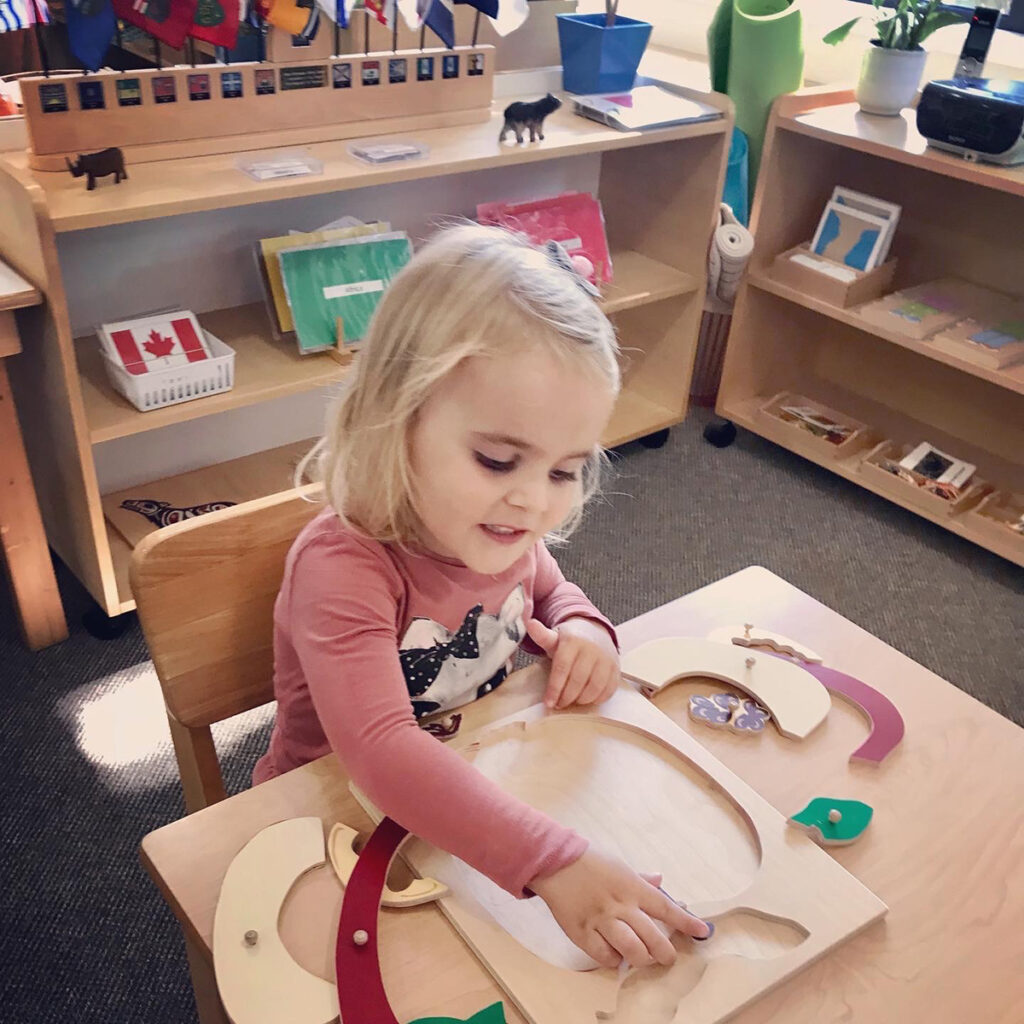Why Montessori?
The Montessori Environment
Choosing a Montessori Environment for your child has many benefits. Known for individually paced learning and fostering independence, the Montessori Method also encourages empathy, a passion for social justice, and a joy in lifelong learning.
Given the freedom and support to question, to probe deeply, and to make connections, Montessori students become confident, enthusiastic, self-directed learners. They are able to think critically, work collaboratively, and act boldly—a skill set for the 21st century.
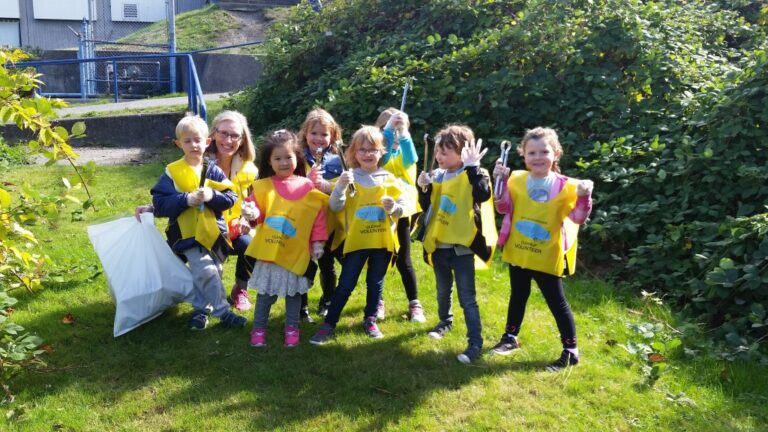
The Montessori Method
The Montessori Method is designed to take full advantage of the child’s desire to learn and their unique ability to develop their own capabilities.
Each child is valued as a unique individual. Montessori education recognizes that children learn in different ways, and accommodates all learning styles. Students are free to learn at their own pace, each advancing as he is ready, guided by the teacher and an individualized learning plan.
Beginning at an early age, Montessori nurtures order, concentration, and independence. Intentional classroom design, materials, and daily routines support the student’s emerging “self-regulation” (the ability to educate one’s self, and to think about what one is learning), in toddlers through adolescents.
Students are part of a close, caring community. The multi-age classroom—typically spanning 3 years—re-creates a family structure. Older students enjoy stature as mentors and role models; younger children feel supported and gain confidence about the challenges ahead. Teachers model respect, loving kindness, and a peaceful conflict resolution.
Montessori students enjoy freedom within limits. Working within parameters set by their teachers and the classroom community, students are active participants in deciding what their focus of learning will be.
Students are supported in becoming active seekers of knowledge. Teachers provide environments where students have the freedom and the tools to pursue answers to their own questions. Internal satisfaction drives the child’s curiosity and interest and results in joyous learning that is sustainable over a lifetime.
Self-correction and self-assessment are an integral part of the Montessori classroom approach. As they mature, students learn to look critically at their work, and become adept at recognizing, correcting, and learning from their errors.
Montessori supports social-emotional skills. Contemporary research supports the 100-year-old Montessori Method’s effectiveness, indicating that children who learn in Montessori classrooms demonstrate stronger social-emotional skills in many areas than children in more traditional environments.
Practical Life
The exercises in the Practical Life area reflect Montessori’s concept of “an education for life” as the child develops practical skills necessary to gain mastery over his/her actions and the child learns to use the common objects of daily life. By engaging in real activities and using real objects with purposeful ends, the child develops real abilities, which give the child independence and control of his life. It also helps the child adapt to their environment, as he/she must follow the social norms and culturally specific methods that govern its care. This gives the child a sense of belonging and order. By engaging in these activities, the child learns to focus their attention for the entirety of an activity and upon completion, has a deep sense of fulfilment. Through these activities, the child develops concentration, independence, co-ordination of movement, inner discipline and independence.
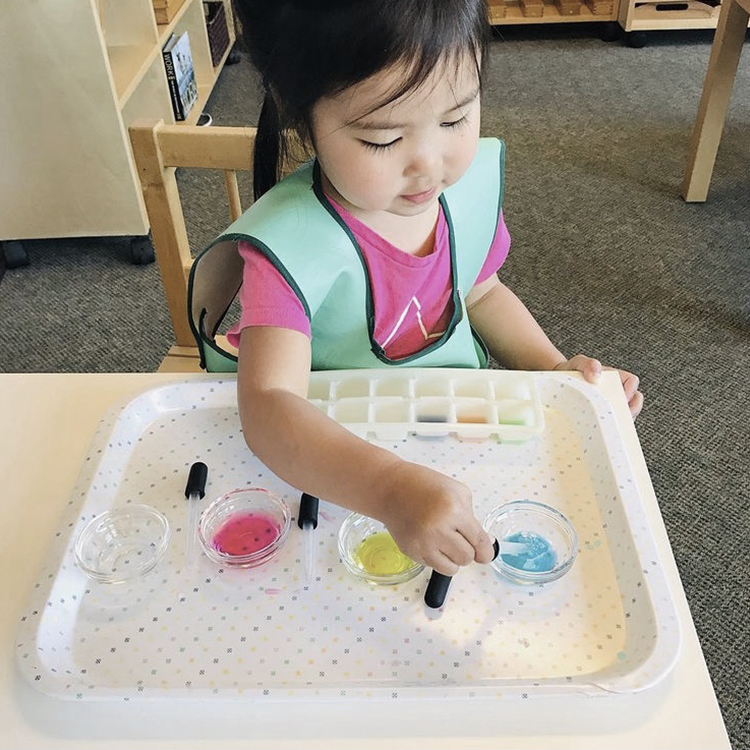
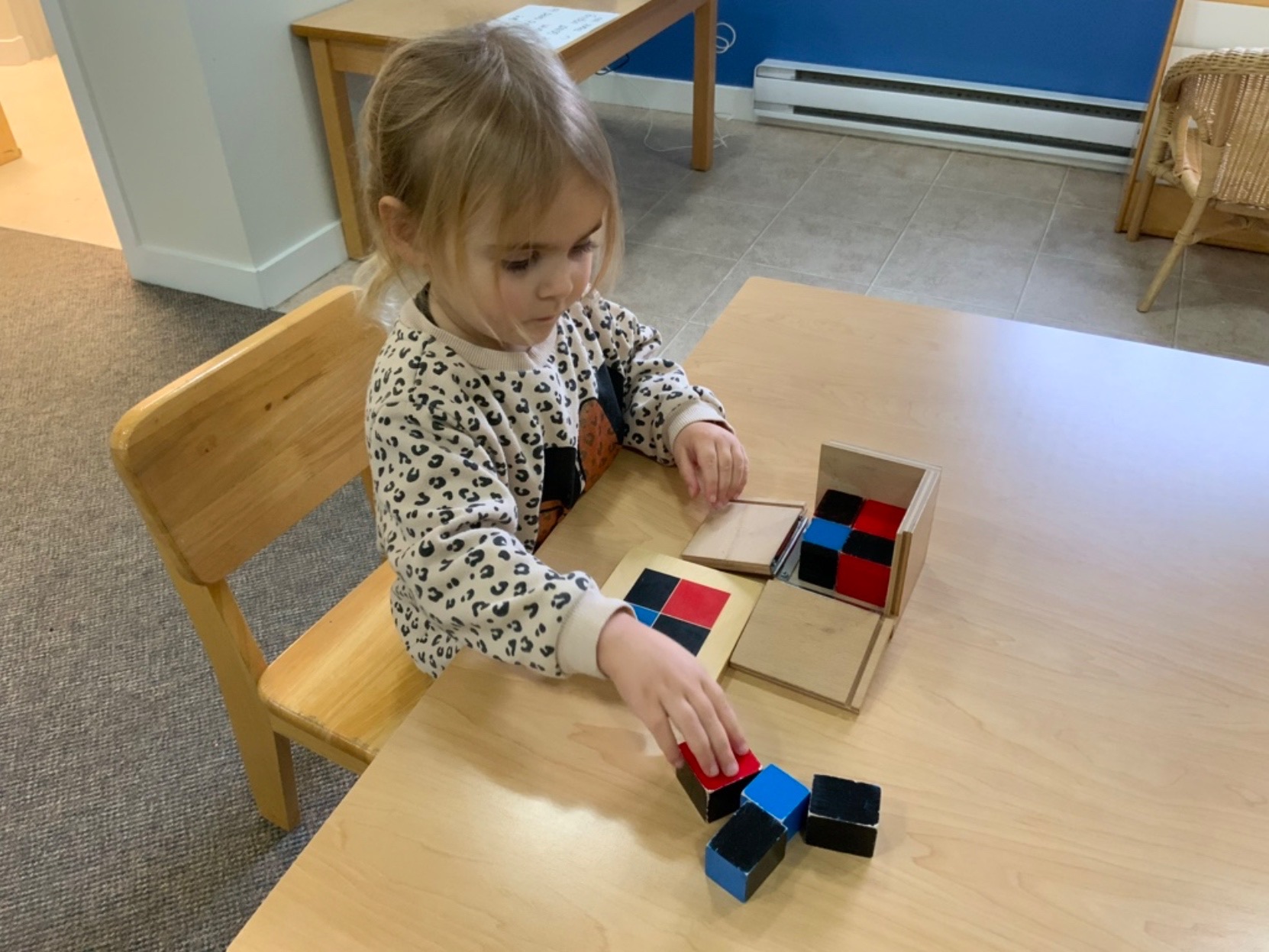
Sensorial
Language
Language development is essential in Montessori education as it is the basis for the child to adapt to their specific location in history and his socio-cultural environment. There are three aspects to the Language program in the Montessori environment: Spoken Language, Writing and Reading. In completing this program, the child is given the tools to engage in all forms of language as the power-activity of the intellect and a channel for the spirit to find expression.
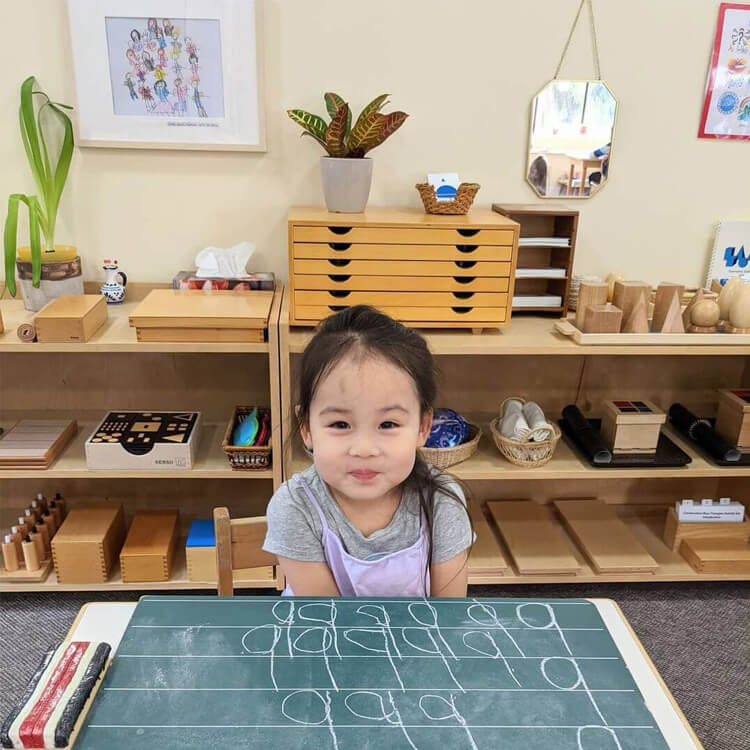
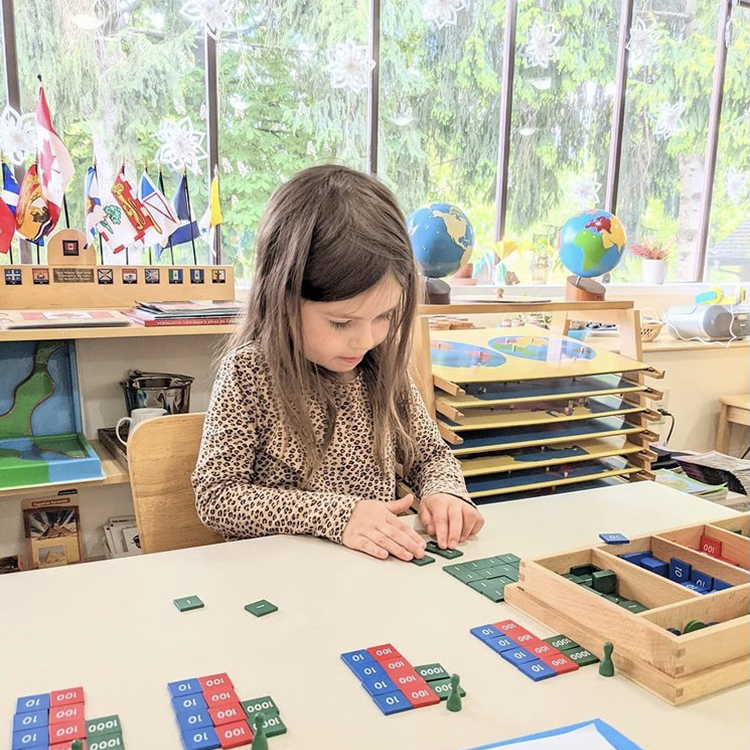
Math
This is a sensorial introduction to the world of numbers. The materials in the mathematics area begin by giving the child a very concrete experience with numbers. As the child progresses through the curriculum, the materials become less concrete and the child is able to work with abstract concepts in addition, subtraction, multiplication, division and fractions. With this method, the child is able to achieve a natural appreciation of the basic concepts
and avoids the mental blockages that so often occur when they first face the abstract.
Cultural
The areas of the Culture curriculum include: Geography, Botany, Zoology, Music, Art and Science, and there are a variety of activities that stimulate the child’s interest in and innate receptiveness to the natural world. This area of the curriculum consists of globes, puzzles, maps, land formations, water formations, animals and their habitat, life cycles of plants and animals etc. The children are also introduced to many cultural activities such as dances, songs, nature walks and reading stories that tell the story of famous artists, nature, different cultures and holiday celebrations. It is also a special treat for the classroom if families visit to share their cultural holidays with the children; this is always a memorable experience.
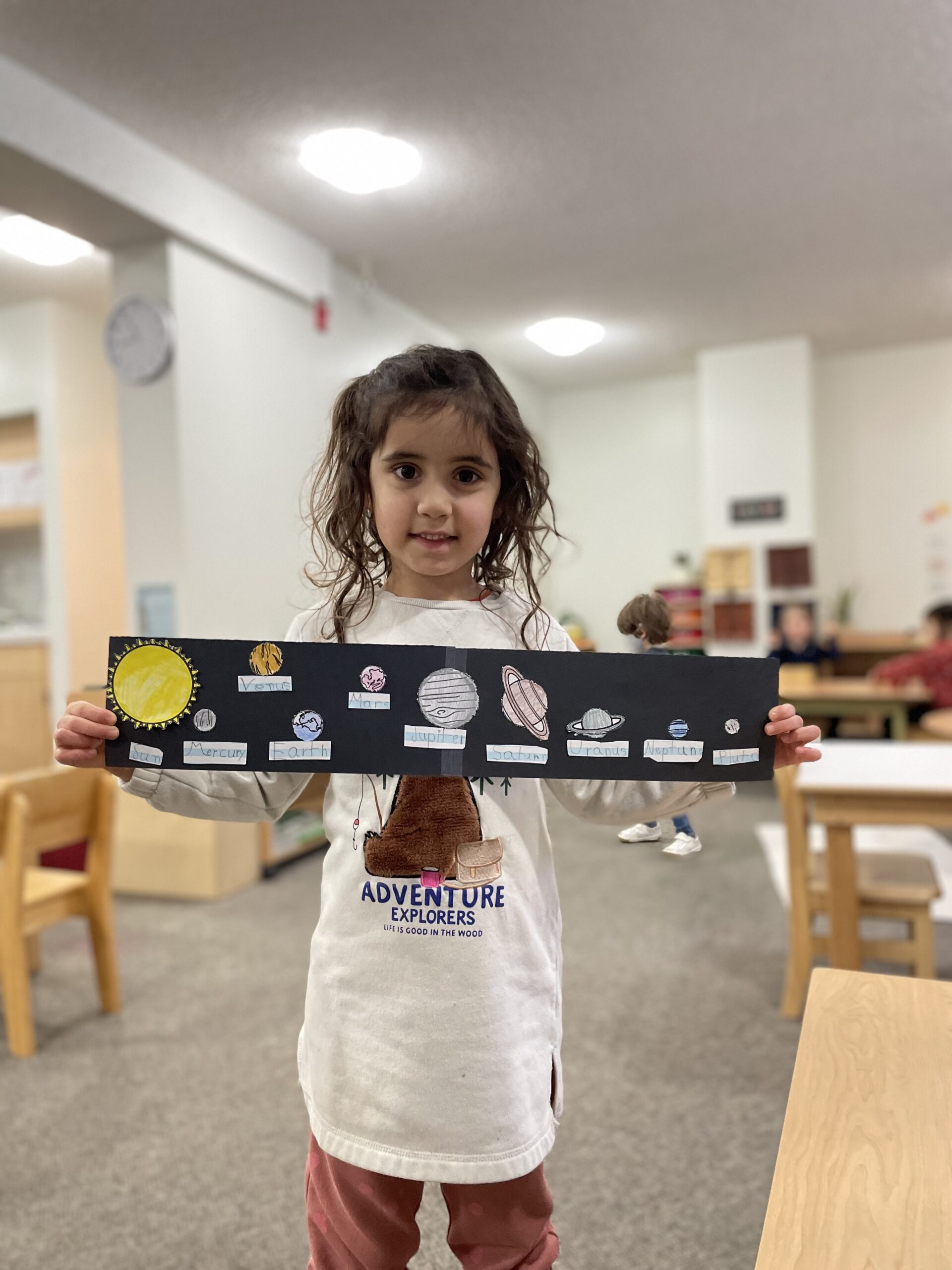
What Parents Are Saying
About Family Montessori



